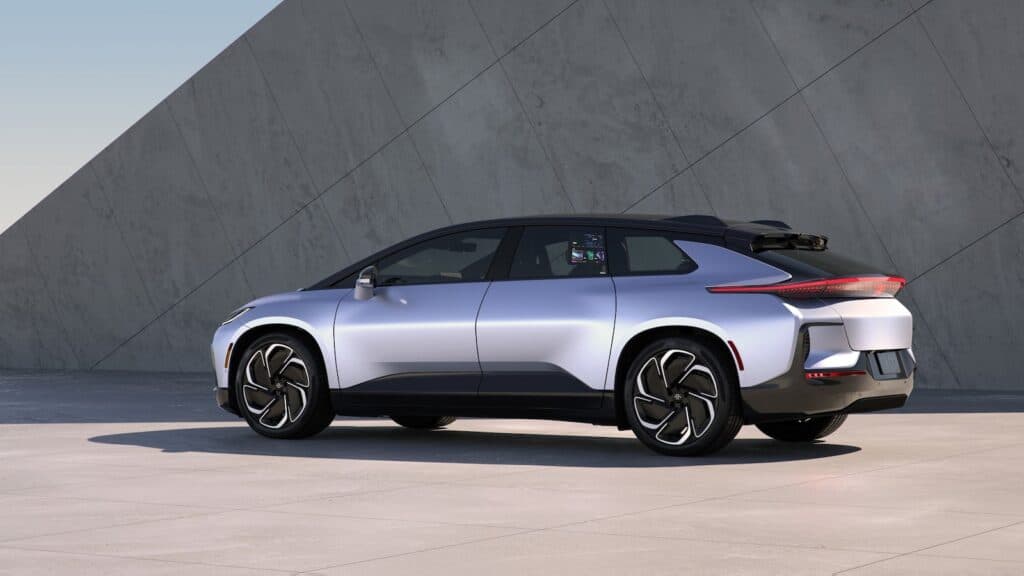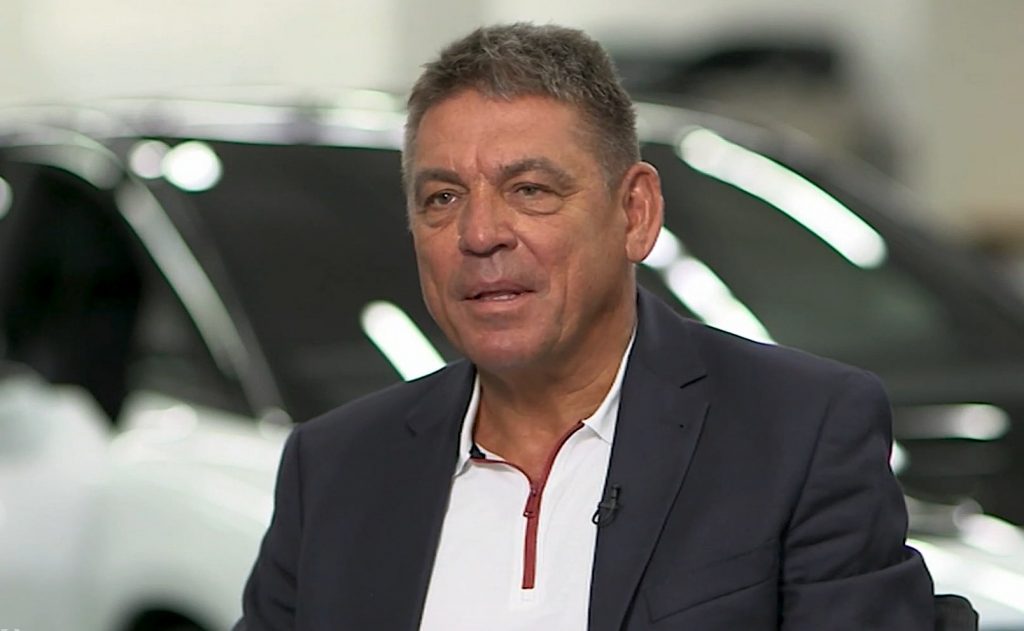
Faraday Future Intelligent Electric, the startup EV automaker with more lives than a cat, said on Monday it reached an agreement to raise up to $350 million in order to launch its FF 91 luxury automobile.
The business claimed it now has the financial freedom to start production and deliver its car to customers thanks to financing from a subsidiary of Yorkville Advisors Global, with an initial commitment of $200 million.
The move follows Faraday Future’s efforts last week, after receiving a notice from the Nasdaq Stock Market for failing to maintain a minimum bid price of at least $1 per share for 30 consecutive sessions. It led the company’s shareholders to accept a reverse stock split.
A roller coaster ride

It’s been a series of ups and downs for the wannabe automaker as Faraday has been trying to bring its first product, the FF 91, to market for several years. The FF 91 is an electric luxury SUV with 1,050 horsepower and an EPA range certification of 381 miles and designed to compete with the Tesla Model X.
The company revealed its first production-intent FF 91 in February, and said at the time that production was due to start in third quarter of 2022. Then, in June, the automaker revealed that it had 401 preorders for the car, compared with the 64,124 reservations it claimed to have in 2017, when the vehicle was first revealed, not the more than 14,000 orders it claimed to have at a later date.
Then, in September, it warned in a federal filing that it was running short on cash as the company was wrangling with corporate governance issues. Faraday Future dumped its Chairperson, Sue Swenson, and board member Brian Krolicki. Once that was accomplished, the company was able to secure commitments for $100 million in new funding, aimed at getting it over the finish line and begin production of its long-awaited FF 91.
Does Faraday have a future?
The question becomes how many orders does the company have, even if the FF 91 does reach production, and is it enough to sustain a business? Better yet, why is Wall Street dumping money into car companies whose business now seems marginal? The headwinds coming at the auto industry in general are steep, including supply disruptions, microchips shortages, inflation and rising interest rates. Can a neophyte EV startup survive?

It’s a question afflicting all automakers, but particularly becomes increasingly vital for startups that have yet to start production or are just starting to, such as Faraday Future or Lordstown Motors.
Earlier this month, the largest electronics contract manufacturer in the world, Foxconn Technology Group, augmented its investment in struggling electric vehicle startup Lordstown Motors Corp., which has started producing its first all-electric pickup truck at a former General Motors plant in Lordstown, Ohio. Foxconn purchased $170 million in common stock and newly created preferred shares that proved to be a financial lifeline to Lordstown as it ramps up production of its Endurance pickup truck.
Whether these companies survive in the long term remains to be seen. Even some of America’ biggest investors, such as Berkshire Hathaway, are trimming their automotive holdings given current economic prospects.







